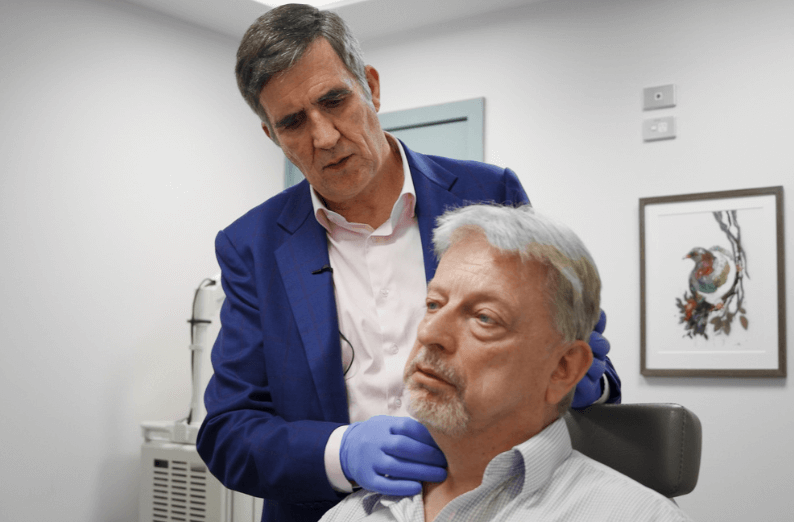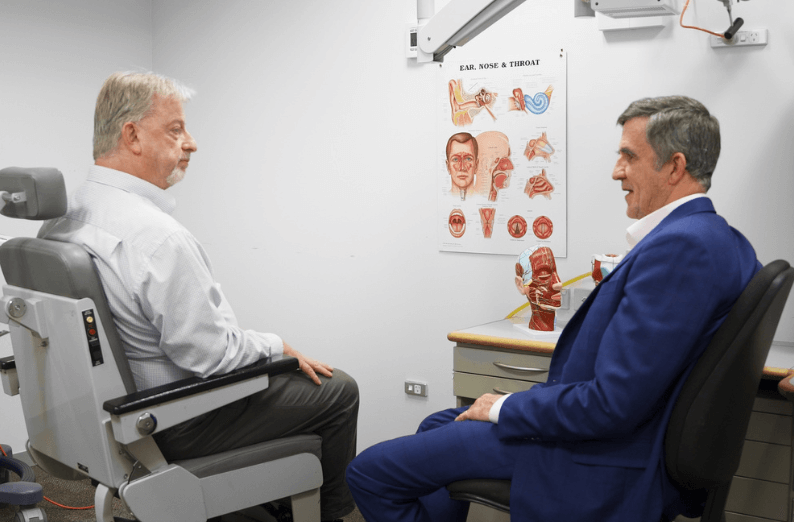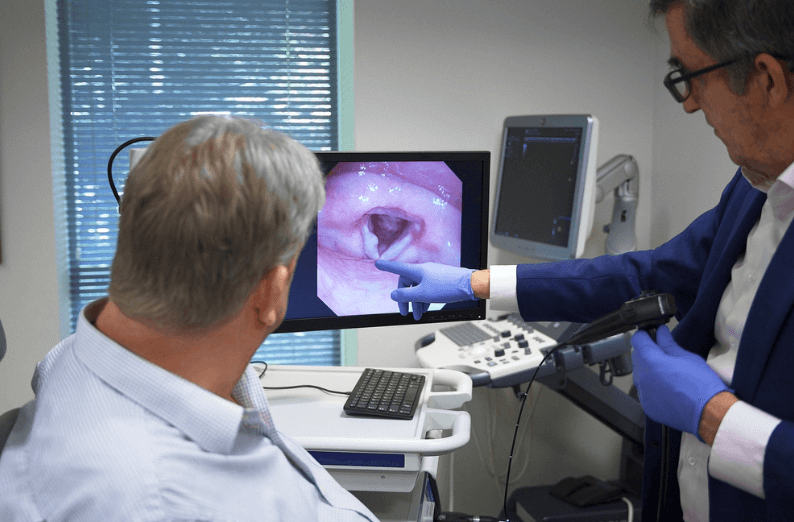Throat Cancer and Transoral Robotic Surgery
Your throat consists of the pharynx (commonly called the throat), the larynx (voice box), the top part of the esophagus (food pipe) and the trachea (wind pipe). The throat is lined with cells called squamous cells. The thyroid gland lies on either side of the trachea (wind pipe)
Throat cancer can originate in several places within the throat and may spread to other structures. If you are experiencing any of the symptoms listed below, we advise checking in with your local GP. Your GP may then refer you to a Head and Neck specialist like Dr. Francis Hall.
It’s important to note that 95% of head, neck, and throat cancer develops in the cell lining –squamous cell carcinoma (SCC) and can be seen on flexible endoscopy. SCC occurs most often in middle-aged to elderly people who smoke, drink alcohol or have been exposed to human papilloma virus (HPV). It can also occur in patients with no risk factors. Worldwide there is an increase in the number of people developing cancer of the tonsil and the base of the tongue (back of the tongue) and this increase is due to HPV. Dr. Hall commonly sees men, aged 45-70 who do not smoke or drink a lot of alcohol, with a lump in the upper neck and discover that they have HPV cancer (scc p16+ve) of either the tonsil or the base of the tongue.
How is Throat Cancer diagnosed?
If you are experiencing any of the above-mentioned symptoms, Dr. Hall can help you. He will:
- Take a careful history
- Perform a thorough physical examination, which will include flexible endoscopy
- Perform ultrasound and ultrasound guided biopsy, fine needle aspiration (FNA)of any neck lumps – a sample of neck lump is sent to the laboratory for examination under a microscope.
Dr. Hall may request CT, MRI and PET CT scans.





